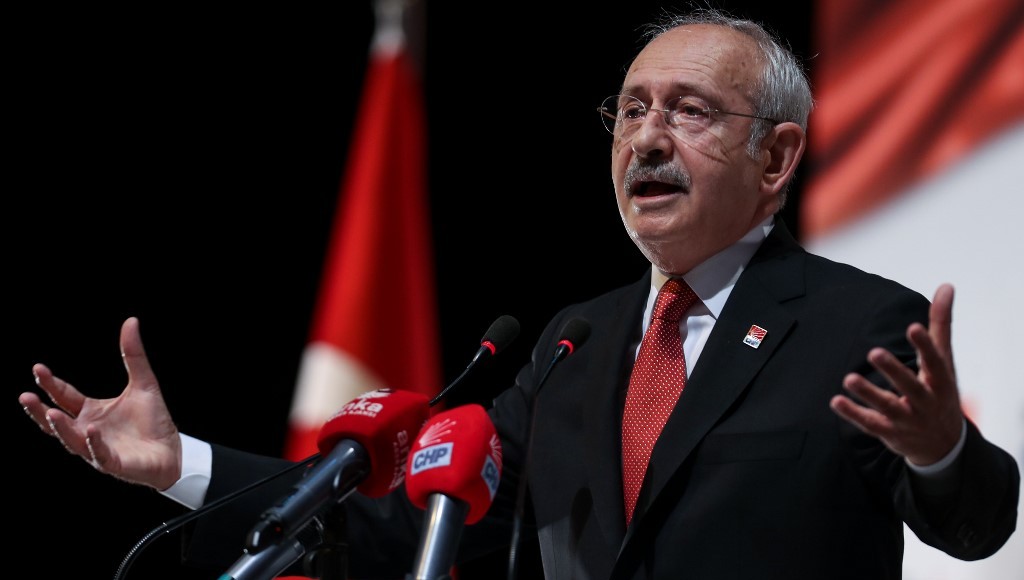Turkey’s main opposition leader Kemal Kılıçdaroğlu stole the spotlight with promises about canceling student loan interest and cutting taxes on passenger vehicle sales, getting all the credit after the government said it would cancel student loan interest and made a move to cut taxes on car sales following the opposition leader’s promises.
Republican People’s Party (CHP) leader Kılıçdaroğlu, who might challenge Turkish President Recep Tayyip Erdoğan in the 2023 presidential election, said earlier this month that once the CHP is in power, he would require students to repay the loan’s principal and not the interest, which is ballooning due to delays in payments and soaring inflation.
Following the CHP leader’s statement, Erdoğan announced last week that the government was canceling student loan interest.
“We agreed in the cabinet meeting that you will have to pay back the amount you borrowed, nothing more,” Erdoğan said, in a move seen as a bid to win over the young people who make up more than a fifth of the 62.4 million Turks set to vote next year.
Many young people went online to thank not Erdoğan, but Kılıçdaroğlu.
In the last general election held in June 2018, the Justice and Development Party (AKP) garnered a nationwide vote of 42.6 percent. However, public surveys have increasingly been showing the party’s public support to be slipping.
Erdoğan, whose ruling AKP has been in power as a single-party government since 2002, was elected president in 2014 and re-elected in 2018. His election in 2018 was under a presidential system after Turkey switched from a parliamentary to a presidential system of governance with a public referendum in 2017.
Under the presidential system, Erdoğan is accused by critics of establishing one-man rule in the country, engaging in massive corruption and using the state’s resources for the benefit of his family and cronies while the Turkish people are overwhelmed by the increasing cost of living caused by the depreciation of the Turkish lira and a record level of inflation at around 78.6 percent, according to official figures.
Analysts say that the embattled president, seeing his base shrinking in the polls, is maneuvering to stay afloat against a reinvigorated opposition that took control of the İstanbul and Ankara municipalities in the 2019 local elections.
However, the opposition seems to be a step ahead of Erdoğan in announcing policies to woo the electorate.
Kılıçdaroğlu, in his latest announcement on Monday, promised to reduce the special consumption tax on car sales, advising people to postpone their plans for buying a new vehicle until the opposition comes to power.
“Postpone buying cars until we come to power. Don’t buy now. When we’re in charge, we’ll cut the special consumption tax,” Kılıçdaroğlu said in a video message on Monday.
Following Kılıçdaroğlu’s promise, a communiqué published on Tuesday in the Official Gazette gave the president the power to set the upper and lower limits of the special consumption tax, or to reduce it to zero.
The move is seen by many as the government gearing up for upcoming elections to reduce car prices.
Turkey’s automotive market shrank 2.4 percent in April, the Automotive Distributors’ Association (ODD) reported last month.
Passenger car sales plunged 5.8 percent from a year ago to 45,500 units, while light commercial vehicle sales rose by 10.4 percent to 14,500.
Passenger vehicles sold in Turkey are already heavily taxed, and a move to cut the special consumption tax would see prices decrease.
The shrinkage of the market can be attributed to exorbitant prices triggered by the high inflation in the country.
Turkey’s inflation crisis started when Erdoğan forced the central bank to go through with a series of interest rate cuts last year that he said were part of his “new economic model.”
The policy rate went down despite rising consumer prices.
Erdoğan rejects conventional economics and insists that high interest rates cause prices to rise, while economists believe his approach has exacerbated the pain felt worldwide from the jump in food and energy prices caused by Russia’s invasion of Ukraine.
Inflation, which had stood at 73.5 percent in May and at 15.0 percent at the start of last year, rose to 78.6 percent, the highest rate since January 1998, in June, with unofficial estimates published by Turkish economists showing prices rising at more than double that figure.

